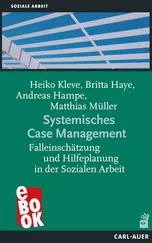My husband unfolded maps at the table. He traced routes with his giant fingertip.
“We have to cross the mountains. The people there are wild,” he warned, his tone defeated.
But I felt buoyed by the idea. Mountains are beautiful. It must be springtime, I thought, and maybe there would be flowers. Maybe we would dip in a mountain lake, blue like my boy’s eyes, cold enough to pucker my skin. We might hear birds calling rather than people hollering. If we went for a hike, were we as likely to be set upon as we were when we left this building? I found it hard to believe that anything could be as brutal as our neighbors.
I remembered seeing pictures of people living in the bottoms of large trees. They were old pictures, even back in my childhood, but surely it was still done. I’d seen whole cars being driven through big hollowed trunks as a stunt. “Maybe we could live in a tree,” I dreamed.
My husband said angrily, “Don’t be a fool. The mountains are dangerous. They’re not like the cities. The city is still civilized.”
I laughed, even though he’d said it straight-faced.
I took his damaged hands in mine. With his arms slack and heavy, I could barely lift them to my lips. In another time, I thought, I wouldn’t have given him a second glance walking down the street. He’s outlandish, his body triangular. But maybe he was a good man, and I wondered, under different circumstances or given more time, if he might surprise me. We might surprise each other. And isn’t that really what makes for a nice life with someone?
“You told a joke,” I said proudly.
He said sadly, “Ha.”
We made love that night, and it was almost tender. Like he felt bad and wanted to remember me in some soft-lit way. So I pulled at his hair and I scratched away the bandages on his hands, bit open the scabs until they bled. His eyes watered, but he took it. I was trying to show him. Don’t give up on me yet.
Finally, he batted me away like a pest. My eye swelled shut, a tinny ring expanded in my ear. He turned from me and sulked.
With my good eye I looked toward my son’s room, where he slept, peaceful and trusting. I had made it this far. I slipped quietly from the bed. I could be brutal too, even in the safety of our once fine home.
The alarm goes off smack in the middle of the presentation. We try to look at each other in the darkened office, in the dim glow of PowerPoint colors; we scoff, we are stunned. Someone says, “This is a drill, right?” We look to the head of the table, where our boss usually sits, but he is not here today; another meeting, another city. Of course Roger usurps our missing boss’s authority. “Yes,” he says in a deeper than natural voice, “just a drill, people,” and we are forced to continue absorbing the presentation.
But soon we’re whispering under the drone of the presenter. Someone says, “I mean, what are the odds it chose our building, right?” Someone replies, “Well, it is the tallest.” Someone counters, “No, it’s not.” There is some whispering back and forth on this point.
At the other end of the table, someone hisses, “I always thought it would come at night, while we slept.”
“Yeah,” someone agrees, “what could be more terrible than taking out a whole subdivision of vulnerable sleeping families?”
“I know ! I feel so much safer when I come through these doors in the morning.”
“Yes, it must be a drill.” Suddenly these two are holding hands and trembling.
The presenter finally stops the PowerPoint because someone is crying loudly, “It’s not a drill, it’s not a drill,” and we all kind of know the crier is right.
Then we’re moving quickly, snapping, This is it, people. We remind one another of protocol as we gather our belongings. Be professional. Focus. Just grab the essentials. You won’t care about your stupid umbrella when it’s got you by the legs . Executive chairs swirl as we pull sweaters, purses, suit coats, from their backs and pour from the boardroom.
The emergency exit is just squeezing shut; the whole floor has already evacuated, the last of them leaving an overwhelming whiff of some childish perfume. We hear the thudding stampede down the cement stairs, and we are about to follow, fling that emergency door wide again, when we hear panicked screams coming from far down the stairwell. The screams become terrible, wet and pulpy, and the stampede of feet reverses back up the stairs, though it sounds greatly diminished.
We run away from the door and pass a conference room where new hires have been ensconced in a training meeting. They huddle under the long oval table. They don’t know the office emergency protocol yet. It’s on page 140 of their manual, and there’s no way they got that far this morning. Thompson, who had been leading the meeting, is quaking under the head of the table. No doubt he hadn’t thoroughly prepped for the training session and hadn’t reread protocol; he’s a winger, not a preparer, which is sometimes advantageous and other times unfortunate. Currently, it is unfortunate; the conference room has been left leaderless. We shrug as we run by, as if to say Oops and Good luck and Don’t follow us .
Past the conference room, we whisper Parachutes extra quietly so the new hires won’t hear. We run to our windowed offices, where our emergency parachutes are locked in safes. They’re a secret executive perk. But the parachutes are gone. The only people who knew about them were the secretaries who ordered them, ordered the safes, hid them, and told us our combinations. It appears they have also taken them. And there they go. The glossy white canopies float past our windows, our secretaries’ skirts blown up over their faces. And we thought they could be trusted.
Now we want to panic, but we calmly huddle instead. What now? we ask ourselves. “This way,” someone yells, pointing to the other hallway. We run.
At the end of the hallway we have two options: go right, down the hall that leads to the break room; go left, down the hall to where the bathrooms are. With so many of us we are funneling and tight and someone yells “Split up!” and that seems smart, so we split and some of us go to the break room and some of us go to the bathroom.
In front of the men’s and women’s we hesitate; we are a mix of men and women. Should we continue to split, or break company policy and enter a bathroom that does not correspond to our sex? No one does that, not even during holiday parties when drunk. It is one of the very followed rules. But if we split, we worry we’d feel vulnerable. If it brutalized the women who hid alone in the women’s, we’d feel horrible. We’d feel equally bad if it brutalized the men in the men’s. It would be much better if everyone had stayed together and gone to the left; there would be a larger number of men and women and we wouldn’t have to be so worried.
But in the break room there are problems, too. Too many of us went right. We yelled, This is too many! as we squeezed down the hall, but no one wanted to be the one to turn the other way, cross that open vulnerable T-space again; what if it was bounding down right at that very moment and caught us in its grotesque arms? In the break room we cram in, jostle for positions away from the door, but there are only so many of those positions, and some of us can’t even get in the room and we’re left squirming in the doorway. We admit our mistake because it is always best to. This won’t work! we scream.
Meanwhile, outside the restrooms someone is yelling, “It won’t think to look in the women’s.” Why? Who knows, but we all agree with the logic and tumble in.
Читать дальше












